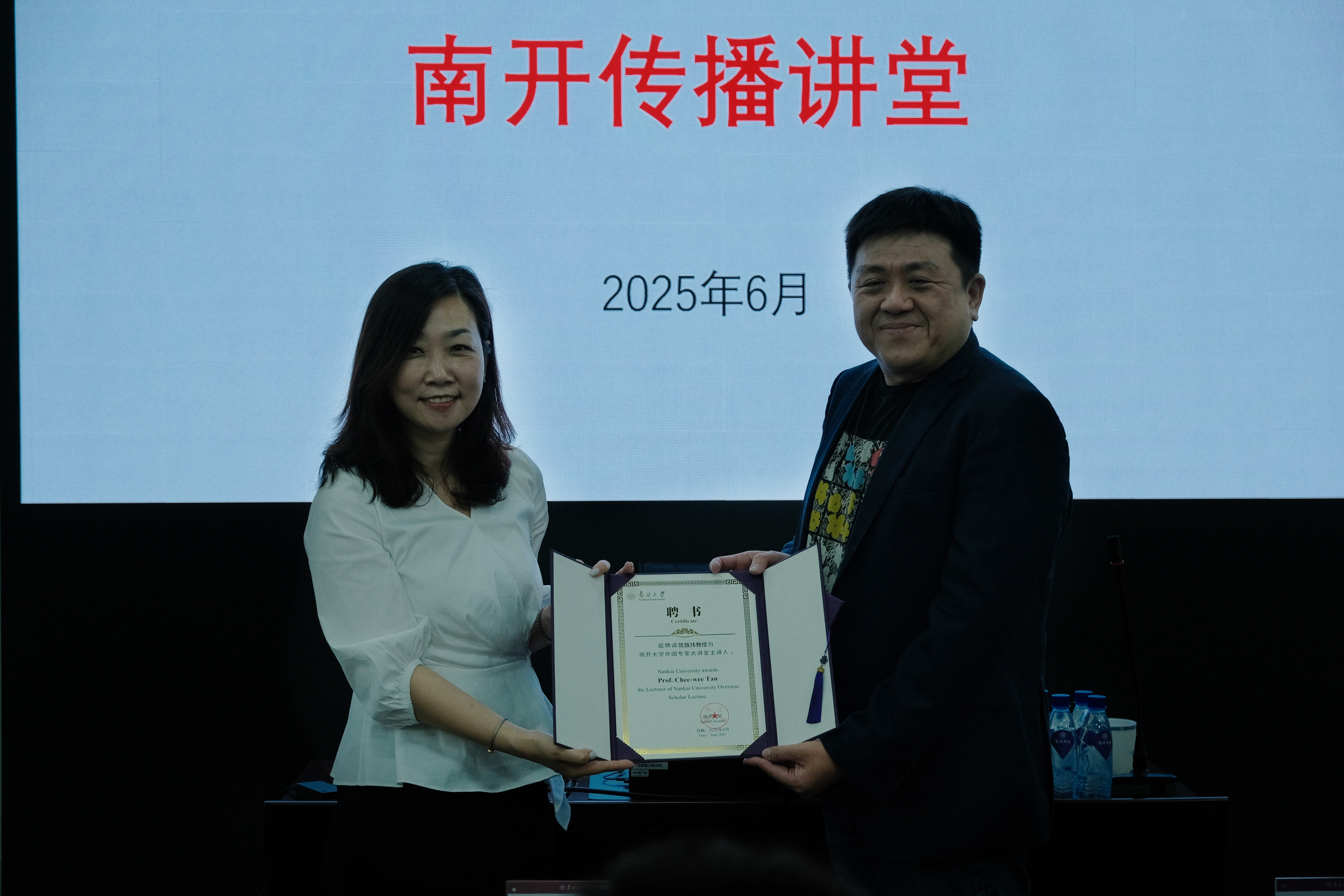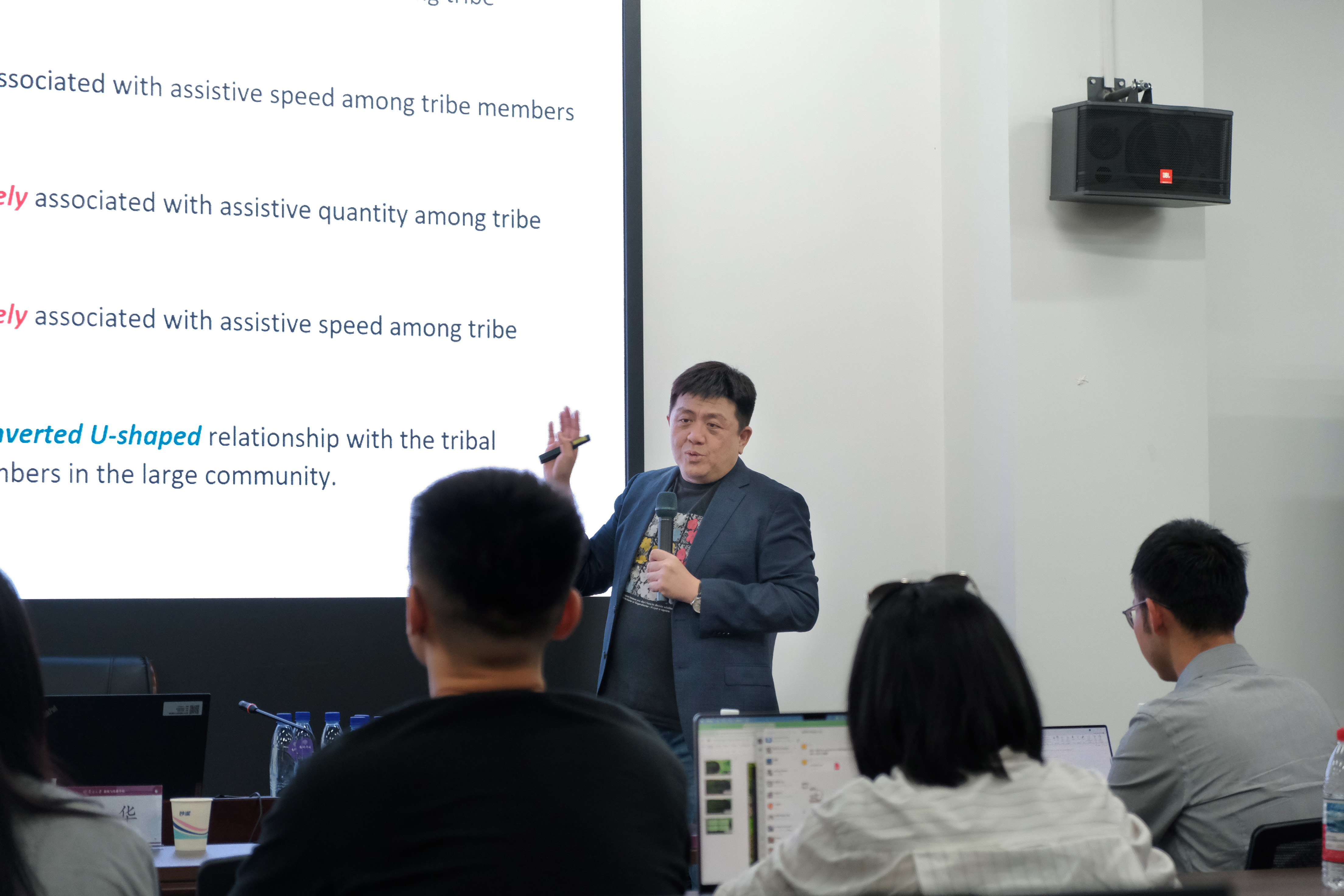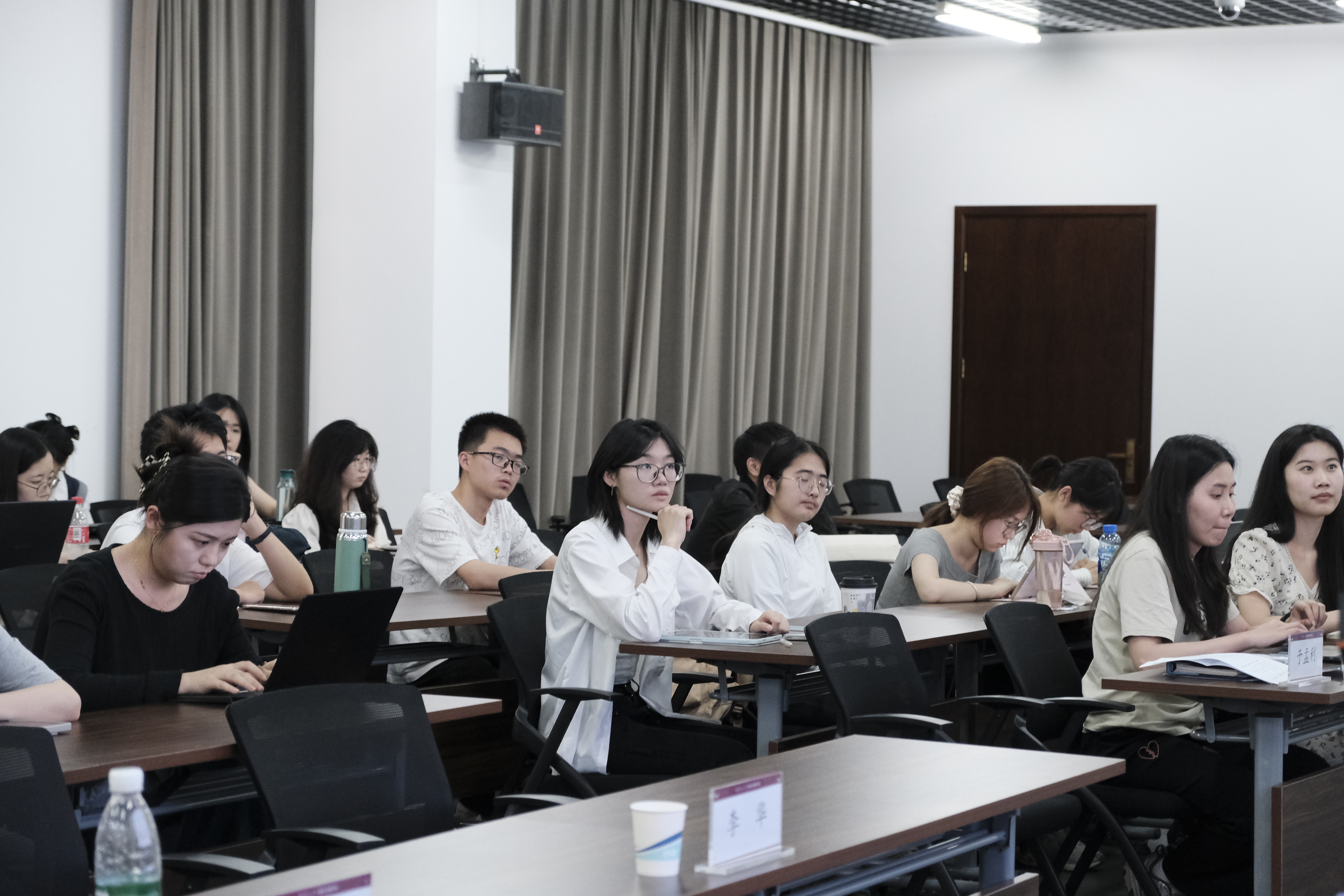To strengthen international academic collaboration and broaden the global perspective of faculty and students, the Office of International Affairs invited Professor Chee-wee Tan from the Hong Kong Polytechnic University to deliver an academic lecture on June 6. The event took place at the School of Journalism and Communication. Li Hua, Deputy Director of the Office of International Affairs, presented Professor Tan with the International Experts Lecture Speaker certificate. The session was hosted by Yu Mengli, Associate Professor of the School of Journalism and Communication.

Professor Tan delivered a lecture titled Tribal Islands or Knowledge Bridges? Understanding Self-Sufficient Subgroups in Online Communities, offering an in-depth analysis of the formation and functional mechanisms of subgroups in online communities. He noted that while group segmentation on digital platforms can enhance user engagement, it may also foster exclusive tribes, which may diminish the quality of external interactions. The study introduced two core variables—tribal density (the intensity of interactions within a tribe) and tribal transitivity (the tendency for closely connected subgroups to form within a tribe)—and conducted an empirical analysis using data from a large Q&A platform focused on truck drivers. The findings reveal that as tribal density increases, the speed and volume of mutual assistance within tribes initially rise, but eventually decline due to growing exclusivity, forming an inverted U-shaped relationship with external assistance. In contrast, tribal transitivity initially suppresses internal mutual assistance but, at very high levels, can trigger new external assistance behaviors. Based on these findings, Professor Tan proposed targeted strategies to mitigate the negative effects of excessive self-sufficiency in online communities, and to enhance community vitality while maintaining group cohesion.

During the Q&A session, Professor Tan engaged in a lively discussion with faculty and students on topics such as variable measurement and the cross-platform applicability of research paradigms.

Nankai University has consistently regarded internationalization as a key strategy in its pursuit of becoming a world-class university, striving to foster an open, inclusive, and mutually-learning academic environment. As a key department driving the university’s global engagement, the Office of International Affairs will continue to follow cutting-edge academic trends, deepen collaboration with renowned international scholars, and organize a series of academic activities to inspire innovation among faculty and students and strengthen the university’s academic capacity. (Written by Huang Qihan and Guo Yichen; Photos by Qiu Tian)
[Scholar Profile] Chee-wee Tan, Professor at the Department of Management and Marketing, the Hong Kong Polytechnic University, received his PhD in Management Information Systems from the University of British Columbia. He previously served as Professor with Special Responsibilities in Research Excellence at Copenhagen Business School (CBS). He is holding or has held Honorary and Guest Professorship positions at several universities, including University of New South Wales, University of Nottingham Ningbo China and University of Science and Technology of China. Professor Tan’s research interests focus on design strategies, innovation mechanisms, and governance models in digital platform ecosystems. His groundbreaking work has been published in leading international journals such as MIS Quarterly (MISQ), Journal of Operations Management (JOM), Information Systems Research (ISR), and Journal of Management Information Systems (JMIS), contributing to the continuous expansion of disciplinary frontiers. He currently serves as a Senior Editor of MISQ and sits on the editorial boards of more than ten leading international journals, including ACM Distributed Ledger Technologies: Research and Practice (DLT), IEEE Transactions on Engineering Management (IEEE-TEM), Information & Management (I&M), and Internet Research (IntR), where he plays an important role in quality control and dissemination of cutting-edge research. As Vice President of the Association for Information Systems (AIS), Professor Tan’s academic leadership and interdisciplinary vision have brought continuous momentum to digital innovation research, earning him wide recognition and influence in both domestic and international academia.


